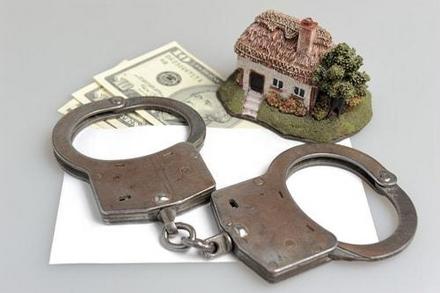TELEPHONES ANSWERED 24 HOURS A DAY
Avoid Federal Mortgage Fraud Charges
 Purchasing a home is one of the largest investments most people make within their lifetime. By entering into a mortgage with a lending company, you agree to make regularly scheduled payments for a set duration of time, typically around 30 years. The decision is a substantial one with long-lasting repercussions, which lends itself to high-stress during the application process. When stress levels rise, our brain can sometimes cease to function as clearly as we would like causing an increase in mistakes. Errors on mortgage documents are something to avoid. Otherwise, you may face federal mortgage fraud charges.
Purchasing a home is one of the largest investments most people make within their lifetime. By entering into a mortgage with a lending company, you agree to make regularly scheduled payments for a set duration of time, typically around 30 years. The decision is a substantial one with long-lasting repercussions, which lends itself to high-stress during the application process. When stress levels rise, our brain can sometimes cease to function as clearly as we would like causing an increase in mistakes. Errors on mortgage documents are something to avoid. Otherwise, you may face federal mortgage fraud charges.
What Is Mortgage Fraud?
Mortgage fraud applies to individuals and professional brokers, alike. Deception occurs anytime a party misrepresents the facts on a mortgage application or document with the intent to obtain a mortgage that would otherwise have been obtainable had the opposing party known the truth. The deceptive practice from either side is punishable at a federal level.
Avoid These Practices
Falsifying employment income: Borrowers and their brokers alike tend to puff up the numbers, usually unaware of the repercussions. However, an error may cause a lender to give a loan to an unqualified individual where they may otherwise not have.
Silent second mortgage: Taking out a loan with one banking institution to cover the downpayment on the house, utilizing the house as collateral, then taking out the mortgage loan with another lender, not disclosing the fund's origination.
Non-owner occupant is claiming occupancy: Lenders offer better terms for those borrowers intending to live in the home because they are less of a flight risk. It is illegal to deceptively say you will be living there to get a better deal.
A gift is a gift: If the downpayment came in the form of a gift, it does not need repayment. If the gift requires compensation, it is a loan, and both parties are liable for the repercussions.
Inflated purchase price: Occasionally two contracts are drawn up with two different costs of the property. It is illegal if the lower price is the expected value and the higher-priced contract is sent to the lender, requiring that they overpay.
Brokers Do Not Always Know Best
Just like you have an agenda to own a home, the broker has a plan to gain maximum profit. Agents learn tricks of the trade without realizing that many of them are illegal. Unfortunately, this leaves many borrowers left to fend for themselves with mortgage fraud charges once the error comes to light. If you are facing fraud charges, you do need to retain an attorney quickly. If you would like to discuss your situation with a proven Chicago, IL mortgage fraud defense attorney, contact the Law Offices of Hal M. Garfinkel LLC, Chicago Criminal Defense Attorney. We proudly offer you a free and confidential consult. You can have your questions answered by calling 312-629-0669 today.
Sources:
https://www.fdic.gov/regulations/laws/rules/6500-350.html#fdic65001003.5
https://www.fdic.gov/regulations/laws/rules/6500-100.html




